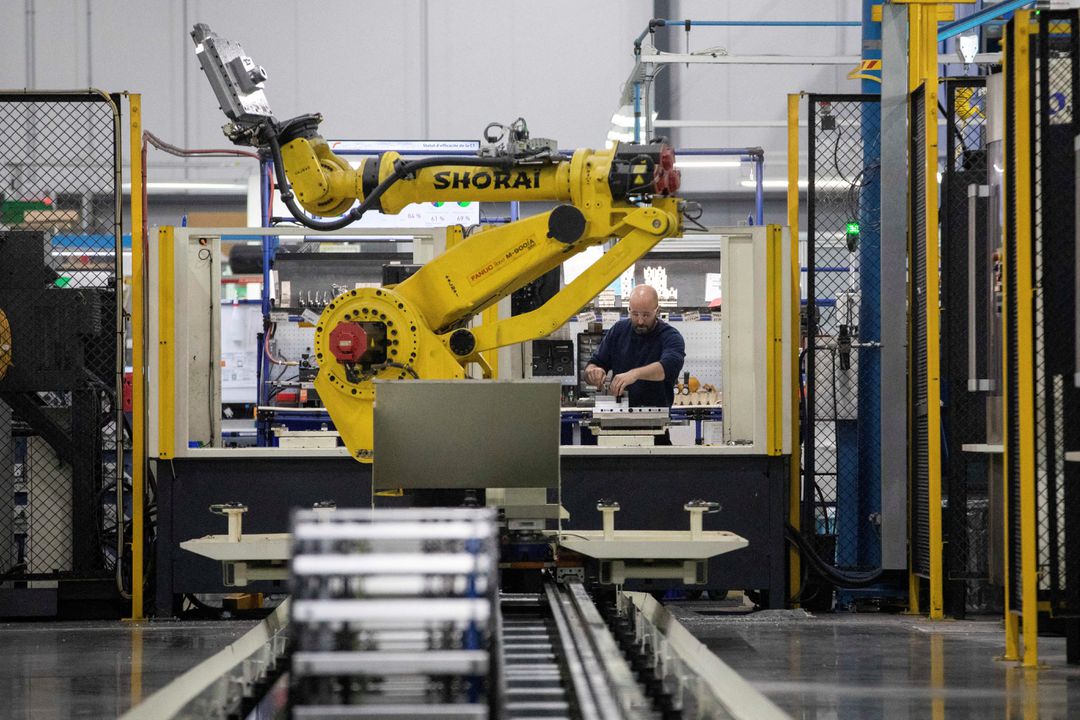
The CEO of Canadian aerospace supplier Abipa International would not negotiate further when a potential customer recently pressed for additional price cuts on components used in areas like engines and landing gear.
The CEO of Canadian aerospace supplier Abipa International would not negotiate further when a potential customer recently pressed for additional price cuts on components used in areas like engines and landing gear.
That stance by CEO Jean Blondin is one that more and more of his peers in different countries are taking these days.
For many small suppliers, who regularly face cost pressures from aerospace giants, soaring inflation and demand for plane parts are generating fresh leverage to protect margins. Drawing hard lines can be tough, however, when planemakers offer high order volumes.
At least six suppliers interviewed by Reuters said they are adding inflation clauses, or pressing for better pricing. Their comments help provide a rare look at how the less-visible lower rungs of the supply chain are pushing up planemaking costs.
The new demands by the small aerospace suppliers come as planemakers Boeing Co (BA.N) and Airbus SE (AIR.PA) wrestle with labor and parts shortages. The planemakers also are ramping up narrowbody production, while facing demand from smaller suppliers to absorb their higher costs.
“The game is how much increase can you pass to your clients ... versus how much price increase are you accepting from your supply chain," said Eric Bernardini, a top aerospace specialist at consultancy AlixPartners.
Tier 3 or small suppliers that serve as subcontractors accounted for roughly 20% of the estimated $100 billion to $130 billion in 2022 production from aerospace's top three supplier tiers, according to AlixPartners.
Buoyed by a three-year order backlog for its factories in Canada, France and Morocco, Abipa expects revenue to rise by about 40% in 2023, topping C$100 million ($74.78 million), Blondin said.
At the company's highly modern factory in the Montreal area, where employees work alongside the whir of machines and a robot, Blondin plans to add further capacity and automation over three years to meet fresh demand - but not at just any price.
"I don't have to accept unacceptable margins," he said.
Boeing said it provides resources and other support to small suppliers. Spirit AeroSystems (SPR.N), which has wrestled with quality issues, said it supports smaller suppliers through financing and raw-materials purchases.
In sectors like autos, the ability of smaller suppliers to pass on higher costs has been a "mixed bag" due to more limited leverage and an earlier rebound in demand for cars, said consultant Laurie Harbour.
COST PRESSURES
Blondin and other small and medium suppliers face a balance between industry pressures to keep their prices low, while ensuring parts arrive in good shape and on time.
The Solidarity Fund QFL, a C$17.8 billion ($13.31 billion)investment fund created by the Quebec Federation of Labour, is pressing companies it funds, like Abipa, to renegotiate contracts to cover the suppliers' higher costs.
"It’s about being fair," said Guy Boutin, a private equity specialist with the fund.
Ernie Staub, president of Montreal machining supplier Leesta Industries, said he faces pressure to lower pricing but cannot afford to make big concessions.
"You have to make money or you go out of business," said Staub of Leesta, which makes jet engine and landing gear components.
If a client balks at Staub's pricing and goes elsewhere, "they have to take the risk if the other supplier can’t deliver it."
TNT Aerospace and UK-based supplier Cajero have both added inflation clauses to contracts to protect themselves against higher costs.
"In the 23 years I have been in the industry, I have not seen such unprecedented inflationary pressures," said Alex Harding, managing director at Cajero, which makes cutting tools for clients like Boeing and Airbus.
Washington state-based TNT, which makes components for France's Safran SA (SAF.PA) and Triumph Group (TGI.N), now insists on inflationary clauses for longer-term contracts, President Aaron Theisen said.
With clients asking for longer contracts and with the cost of just one commonly used type of stainless steel doubling since September, such clauses have become a necessity.
Just like larger suppliers and planemakers, smaller suppliers want to pass on costs, said Tim White, an analyst at supply-chain risk management company Interos.
"Smaller (companies) haven't historically felt that they have had negotiating power to demand such inclusions," White said. "The new inflationary environment has made this a mandate to be included in negotiations regardless of tier and size."
While delivering quality parts on time remains key for planemakers, costs are also an issue, said Raman Ram, an aerospace specialist for consultancy Ernst & Young.
Europe's Airbus is producing more planes but also trying to lower costs on its loss-making A220 narrowbody jet.
One supplier said he walked away when his bid on A220 work was refused because his pricing was deemed too high. A second supplier said Airbus backed off when he pushed back against proposed cost cuts. Both suppliers asked not to be identified discussing the negotiations.
Airbus said its contracts are long-term, volume-based and include elements related to market volatility or inflation. A spokesperson said Airbus is improving the A220 program's competitiveness by accelerating its production rate and has made "significant progress" on costs with some suppliers, but declined to offer specifics on confidential talks.
Ultimately, customers are still buying, even with the higher pricing, noted Andre Roseberry, president of aerospace tool designer and manufacturer Rasakti in Canada's aerospace hub, Quebec.
"The costs are up, but they’re up everywhere."
($1 = 1.3372 Canadian dollars)







